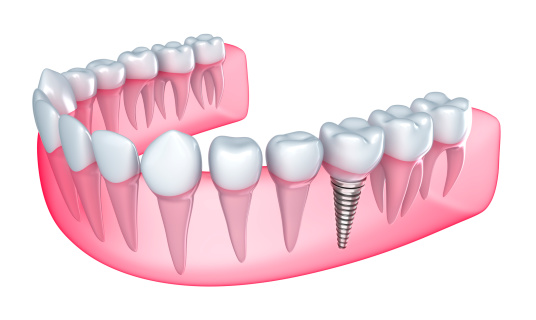When a dental implant doesn’t heal like it should or starts to feel uncomfortable, it can catch you off guard. Most people get implants expecting them to last for years, so when one starts acting up, it leads to questions and worry. A failed implant doesn’t always mean something drastic has to happen, but it does call for attention from someone who knows what they’re doing.
Problems with implants don’t just fix themselves. Whether it’s due to pressure from chewing, infection, or not enough bone to hold it securely, the earlier it’s looked into, the better the outcome. Getting timely help from a dental implant specialist in Phoenix gives you the best shot at restoring both comfort and confidence in your smile.
Identifying The Signs Of A Failed Dental Implant
Spotting signs of implant trouble early can help prevent bigger issues down the road. Some symptoms might show up within the first few weeks after treatment, but others can happen months or even years later.
Here are some common signs that may point to a failed implant:
– Persistent pain after the initial healing period
– Swelling or redness that doesn’t go away
– Loose feeling around the implant when chewing or talking
– Trouble biting down like you used to
– A strange taste or smell in the area if infection is present
Pain and discomfort that go beyond the normal healing timeframe can mean the tissues aren’t adjusting well. Swelling that lingers or gets worse might be a sign your body is reacting to bacteria around the implant site. If the implant feels wobbly or like it’s moving, that’s a red flag. Tightness and stability are what keep implants working like natural teeth.
One example is someone who noticed their dental implant felt squishy when brushing. At first, they thought it was just gum sensitivity, but after a few more weeks, they couldn’t bite into a sandwich without pressure. It turned out the bone surrounding the implant hadn’t healed properly, and early treatment could’ve saved them a lot of frustration.
Pay attention to anything that feels off. A working implant should feel solid and pain-free once healed. If you feel like something’s changing, it’s likely time to get it checked out.
Common Causes Of Dental Implant Failure
Dental implants can fail for multiple reasons, even when patients think they’ve done everything right. Some causes are linked to the healing process right after surgery, while others build up over time.
Here are some of the more common culprits:
1. Poor Oral Hygiene
Neglecting regular brushing and flossing allows bacteria to build up around the implant. This can lead to inflammation and, if untreated, bone loss around the base.
2. Insufficient Bone Support
Sometimes the existing bone just isn’t dense or strong enough to hold the implant long-term. This may not be obvious right away, but over time, a weak bone foundation leads to instability.
3. Peri-Implantitis
This condition is similar to gum disease but affects the tissues around an implant. It’s usually caused by plaque buildup and poor healing and can lead to infection and bone loss.
4. Overloading the Implant
This happens when too much pressure is placed on the implant before it’s fully healed. This extra stress makes it harder for the implant to bond securely with the bone.
Every patient is different, so causes can vary depending on health history, habits, and even bite alignment. Getting to the root of what’s gone wrong helps guide what treatment comes next. The sooner that’s sorted out, the easier the solution will be.
Expert Solutions For Failed Dental Implants
When an implant doesn’t heal the way it should, the fix depends on what exactly went wrong. There isn’t one single solution that fits everyone, and that’s why it’s important to work closely with a dental implant specialist in Phoenix. They’ll look at the bigger picture, including your oral health, implant history, surrounding bone, and how you bite down, to come up with the right approach.
Some of the treatment options that may be recommended include:
– Surgical repair: If there’s infection or damage to the surrounding gum and bone, minor surgery can help clean the area and make room for a new implant or corrective treatment.
– Bone grafting: If the bone has thinned out or wasn’t strong enough to hold the implant in place, bone graft material can be added to rebuild the area before trying another implant.
– Improved hygiene routines: Something as basic as rinsing better or cleaning between the teeth more thoroughly can go a long way in keeping new and existing implants healthy.
– Maintenance appointments: Set checkups help spot any signs of trouble early. These visits can include deep cleanings or adjustments when needed.
Let’s say someone had an implant placed but didn’t come back for regular checkups. They brushed, but skipped flossing because they found it tricky around the implant. Over time, bacteria started to build up around the gumline, leading to infection. A follow-up showed they needed treatment for early bone loss and some extra deep cleaning. Without that appointment, they could’ve lost the implant entirely.
Fixing implant failure doesn’t always mean starting over. Sometimes it just means changing course and focusing on targeted support.
Preventive Measures For A Successful Implant
Once you’ve gone through the work of restoring or replacing a dental implant, keeping it strong for the long haul is what matters next. That’s where prevention comes into play. Good habits and regular dental visits help stop issues before they have a chance to grow.
Here are a few ways to support your dental implant’s health:
1. Stick to a consistent oral care routine
Brush in the morning and at night using a soft-bristled toothbrush. Use low-abrasive toothpaste and don’t forget to clean around the implant with floss or special brushes meant for that purpose.
2. Pay attention to diet and habits
Chewing hard candy, ice, or non-food items like pen caps can stress the implant. Having a balanced diet helps your gums and bones stay strong, especially with calcium and vitamin-rich foods.
3. Avoid smoking or vaping
These habits interfere with healing and make infection more likely. They can also affect the bone structure, making implants more likely to fail over time.
4. Don’t skip checkups
Even if you feel fine, regular dental visits include checkups for implants. X-rays can spot changes in the bone or gum around the implant that aren’t visible during a routine exam.
Preventing failure means treating your implant the way you’d treat your natural teeth. With daily care, good nutrition, and a bit of caution, the chances of a lasting fit are much better.
Getting Back To A Confident Smile In Phoenix
Dealing with a failed dental implant can be frustrating, especially if you expected it to be a long-term fix. But a problem doesn’t mean you’ve reached the end of the road. With support from the right specialist, recovery is possible and usually more straightforward than it seems at first.
Your comfort and long-term results matter. If something feels off or you’ve had issues come up with a previous implant, it’s better to get help now rather than wait. Whether you’re having symptoms or just want peace of mind, having someone look at your situation with experience and care makes all the difference.
In Phoenix, taking the step to work with a local specialist can make healing a smoother experience. The sooner the issue is addressed, the sooner you can get back to eating, smiling, and living without the stress that comes with implant problems.
When you’re ready to address and resolve issues with a failed dental implant, relying on a dental implant specialist in Phoenix can make all the difference. Anderson Dental is here to provide you with personalized care and effective solutions. Whether it’s through surgical intervention, bone grafting, or specific maintenance routines, we prioritize your needs to ensure your dental health is back on track. For more details about how we can assist you with implant salvage, see how we can help bring your smile back to its best.



